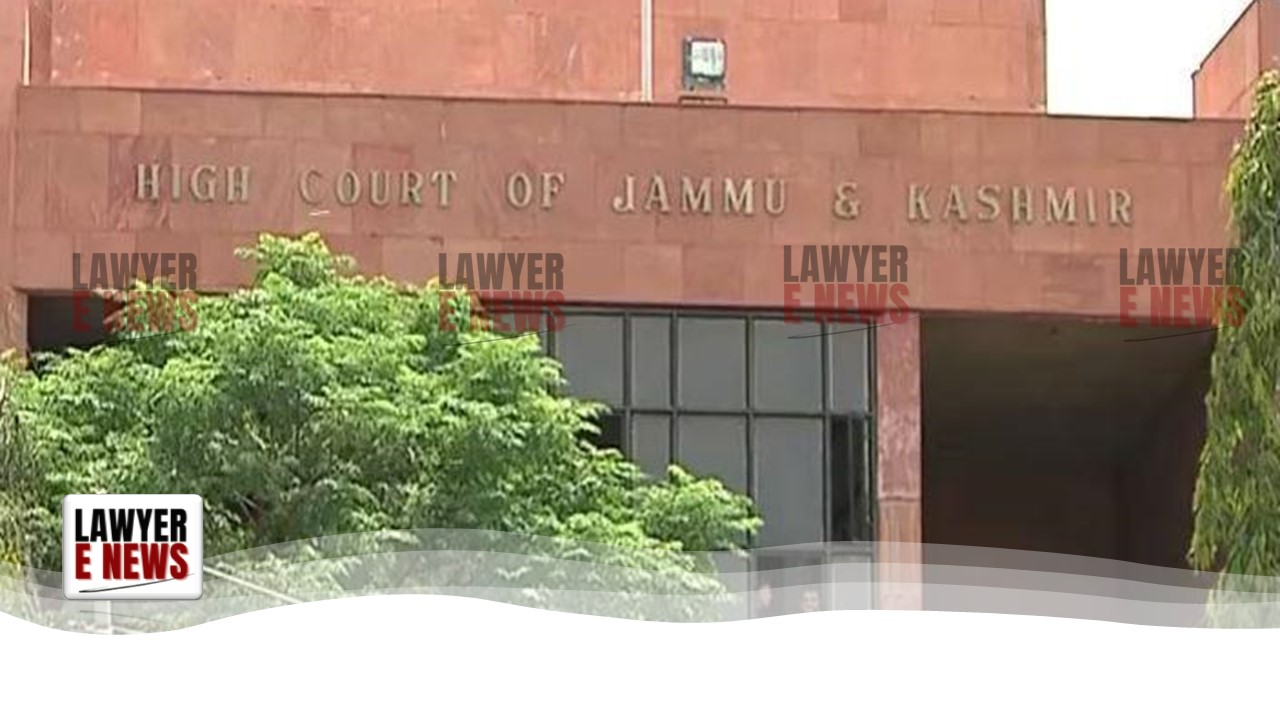-
by Admin
15 February 2026 2:16 AM



High Court of Jammu & Kashmir and Ladakh dismissed an appeal filed by Sabahat Sanna in Sabahat Sanna v. Dr. Shabir Ahmed (MA No.29/2024). The Court upheld the Family Court's ruling that the "ordinary residence" of a minor, not the guardian, determines the court's jurisdiction in custody matters under the Guardians and Wards Act, 1890. The Court found that since the children were ordinarily residing in District Poonch, the Family Court in Jammu had no jurisdiction.
The appellant, Sabahat Sanna, had sought custody of her two minor daughters, aged 5 and 4, under Sections 12 and 25 of the Guardians and Wards Act, 1890. The Family Court dismissed her application, holding that it lacked jurisdiction as the minors were residing in District Poonch, not Jammu, where the petition was filed. This order was challenged by Sanna, who argued that under Muslim law, she was entitled to the custody of her daughters until they reached puberty, and thus, the minors should be deemed to reside with her in Jammu.
The central legal issue was whether the "ordinary residence" of the minors should be considered in light of Muslim personal law, which grants custody of daughters to the mother until puberty. The appellant argued that this custody right under personal law should influence the determination of where the minors "ordinarily reside."
The respondent opposed this view, asserting that the Family Court’s decision, based on Section 9 of the Guardians and Wards Act, was correct as the minors were living in Poonch and had never resided in Jammu.
The Court thoroughly examined Section 9 of the Guardians and Wards Act, which stipulates that applications for guardianship must be made to the District Court where the minor "ordinarily resides." The Court rejected the appellant’s argument that her deemed custody under Muslim law should dictate the place of ordinary residence. It cited the Supreme Court's interpretation in Ruchi Majoo v. Sanjeev Majoo (2011), emphasizing that "ordinary residence" refers to the minor's physical location and intention to reside in a place, not the legal custody rights of the guardian.
"Ordinary residence of a minor is different from the residence of the natural guardian who may be in deemed custody of the minor under personal law."
Since it was undisputed that the minors had been living in Poonch, the Family Court in Jammu had no jurisdiction, and the appellant's case was rightly dismissed.
The High Court of Jammu & Kashmir and Ladakh dismissed the appeal, upholding the principle that the ordinary residence of the minor is the determining factor in jurisdictional questions under the Guardians and Wards Act. This ruling reinforces that custody rights under personal law do not override statutory provisions regarding the jurisdiction of family courts.
Date of Decision: 24th September 2024
Sabahat Sanna v. Dr. Shabir Ahmed
